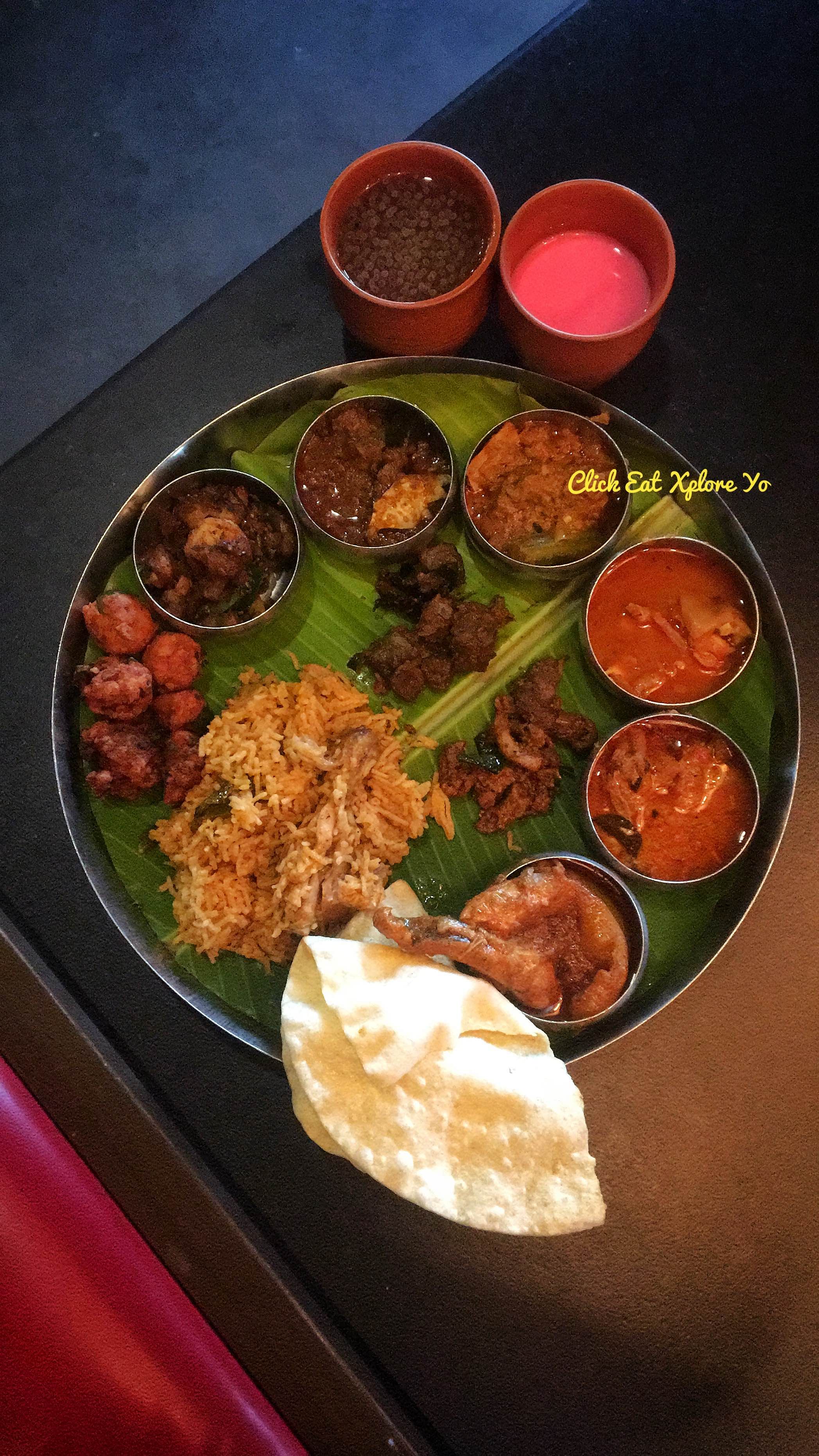She is not only a proud successor of Pattu’s family but also an author of “PattusPakshala” capturing 100 years old heirloom recipes of her family & community.
“Initially it was a nightmare as my cooking was limited to home and here it's on a large scale. I was a little sceptical if I could get the homemade sense of taste to the table. After multiple failed attempts in a commercial kitchen and initial struggle, I was able to replicate the nearest dish that’s close enough. Instances I had to make some dishes in small portions multiple times to meet the taste standard. All the key ingredients were carefully made and carried from Chittoor to keep the taste near traditional.” says Rajeshwari.
This curated feast introduces you to way more rustic dishes that are just not meat-based but also decent palatable vegetarian delicacies (with a couple of wow factor veg dishes). Like any other bordering cities that tend to have influences of both the regions on tradition, culture & cuisine, bordering cities of Rayalaseema, has got a fair influence of Tamil Nadu (in fact ones a part of Madras province if I am not wrong.) & Karnataka. So few of the dishes part of the menu sound madrasi. To be honest for that very main reason I look at this as a micro cuisine or family cuisine rather than calling it as Rayalaseema cuisine. If I am not wrong even the chef intends to convey the same but with the tag of Rayalaseema, it mistakes it to be a proper regional cuisine.
The beauty of Indian cuisine, for the fact any cuisine is, the dishes are crafted with ingredients to suit respective season and this feast features a few of them like Miryala Pulusu, Naatukodi Jeelakarra Pulusu, Kalla Pulusu, Sadda Vada with Erra Karam, RagiAmbali, etc. that adds warmness to your body and also acts as an aid to flue which is most common in the present time of year.
Besides, few exquisite dishes that I couldn’t stop with one serving were Antu Mamidi Chepala Pulusu, Nendrikaya Rasam, Masala Vadala Karam Pulusu, Gorchikkudu Nanchu, Urabindi, Kodi Kheema Undalu, Marval Kodi Pulav. Not to forget the Allam Murabba, Kobbari Lauju & Kobbari Bellam laddu which pulled me instantly to the childhood remembering the days of buying them in front of the school.
From what I see more than a vegetarian a Non-Vegetarian enjoys this even better with the items on the menu. End of the meal I am sure you wouldn’t leave without saying ‘Aha Rayalaseema !’.
Kudos to Rayalaseema Ruchulu (one among the first entrants to the city to introduce Rayalaseema food) in creating visibility to unseen hidden micro cuisines. Wish to see more such events coming up.

